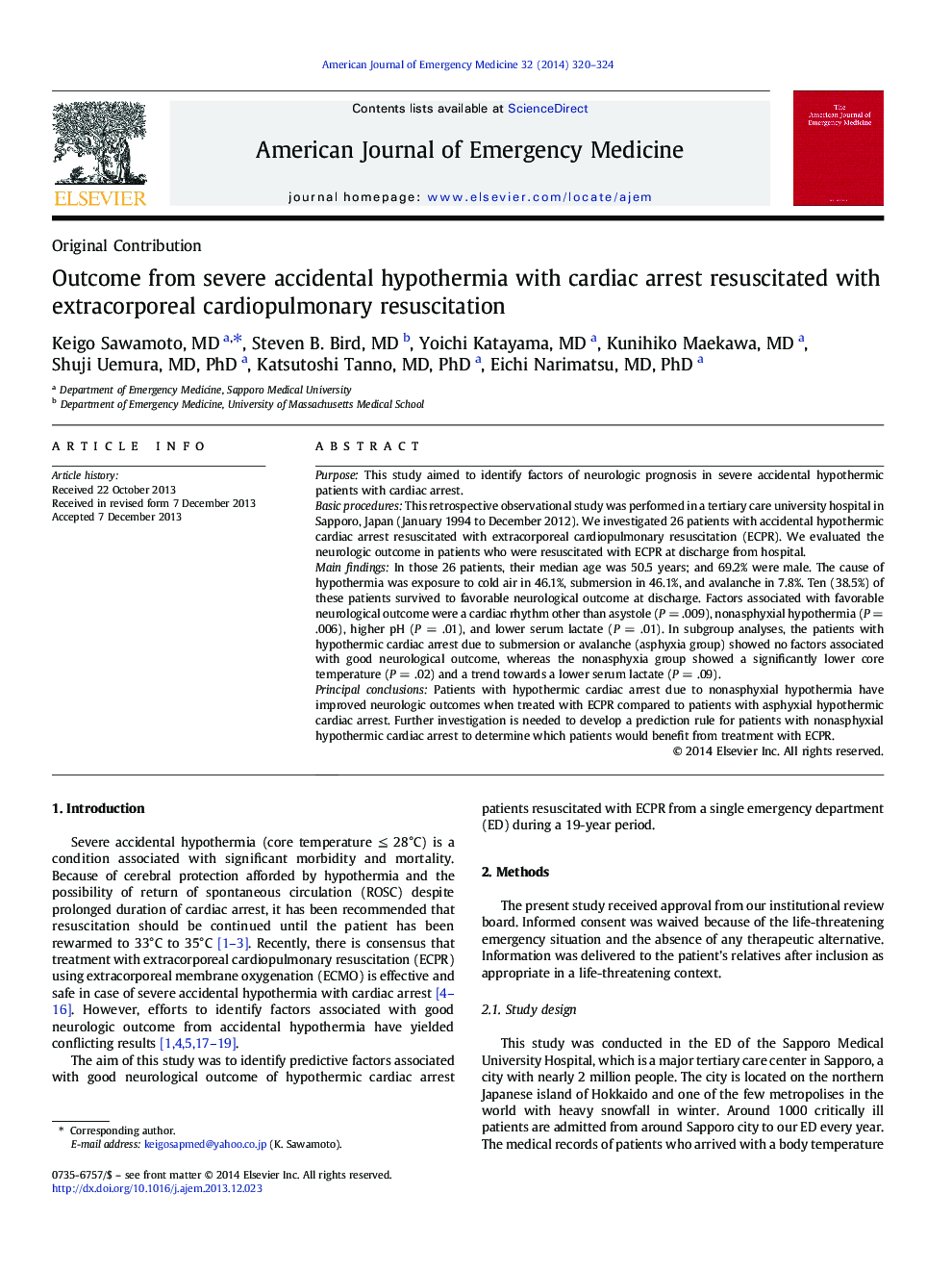| Article ID | Journal | Published Year | Pages | File Type |
|---|---|---|---|---|
| 3223707 | The American Journal of Emergency Medicine | 2014 | 5 Pages |
PurposeThis study aimed to identify factors of neurologic prognosis in severe accidental hypothermic patients with cardiac arrest.Basic proceduresThis retrospective observational study was performed in a tertiary care university hospital in Sapporo, Japan (January 1994 to December 2012). We investigated 26 patients with accidental hypothermic cardiac arrest resuscitated with extracorporeal cardiopulmonary resuscitation (ECPR). We evaluated the neurologic outcome in patients who were resuscitated with ECPR at discharge from hospital.Main findingsIn those 26 patients, their median age was 50.5 years; and 69.2% were male. The cause of hypothermia was exposure to cold air in 46.1%, submersion in 46.1%, and avalanche in 7.8%. Ten (38.5%) of these patients survived to favorable neurological outcome at discharge. Factors associated with favorable neurological outcome were a cardiac rhythm other than asystole (P = .009), nonasphyxial hypothermia (P = .006), higher pH (P = .01), and lower serum lactate (P = .01). In subgroup analyses, the patients with hypothermic cardiac arrest due to submersion or avalanche (asphyxia group) showed no factors associated with good neurological outcome, whereas the nonasphyxia group showed a significantly lower core temperature (P = .02) and a trend towards a lower serum lactate (P = .09).Principal conclusionsPatients with hypothermic cardiac arrest due to nonasphyxial hypothermia have improved neurologic outcomes when treated with ECPR compared to patients with asphyxial hypothermic cardiac arrest. Further investigation is needed to develop a prediction rule for patients with nonasphyxial hypothermic cardiac arrest to determine which patients would benefit from treatment with ECPR.
